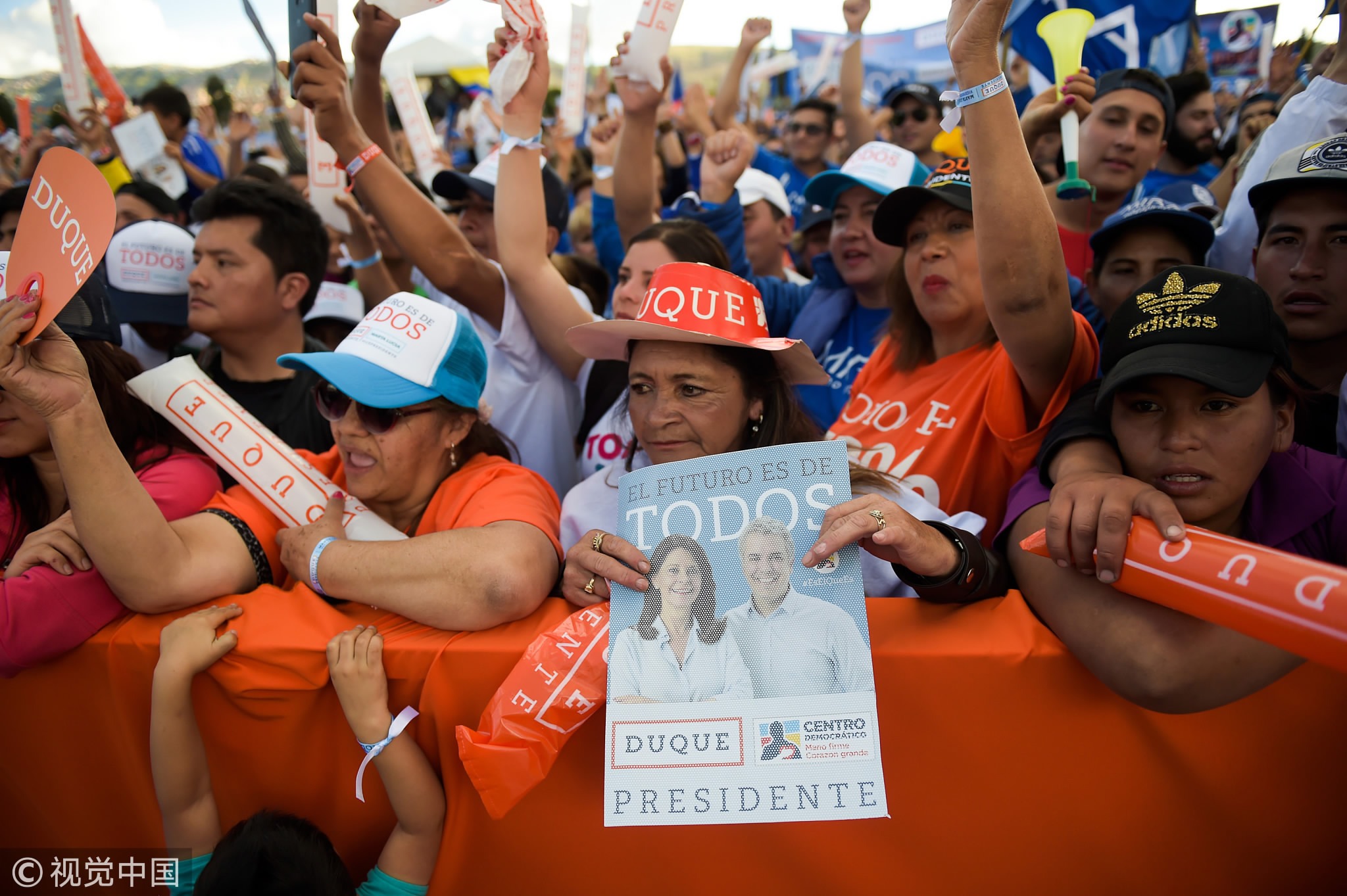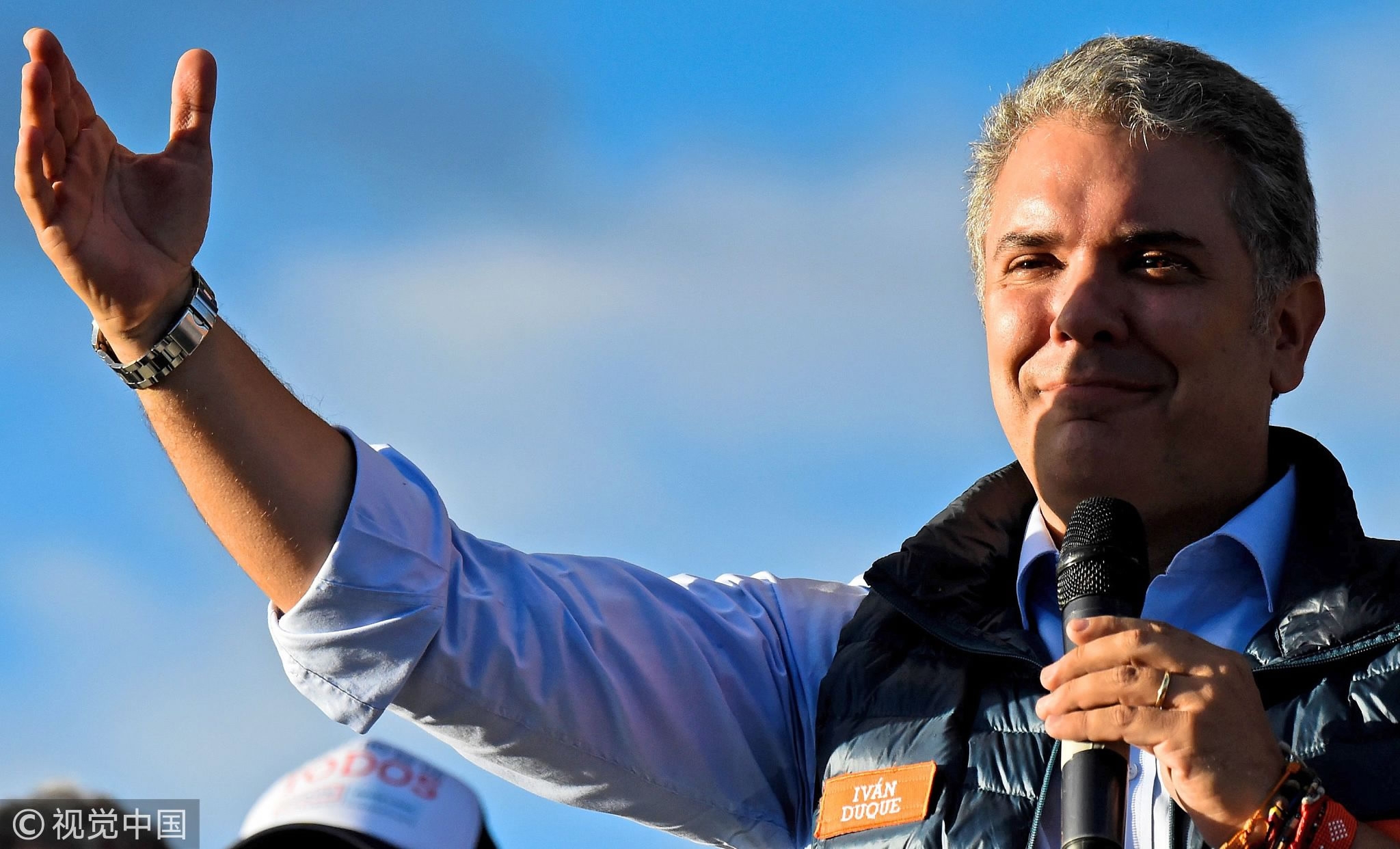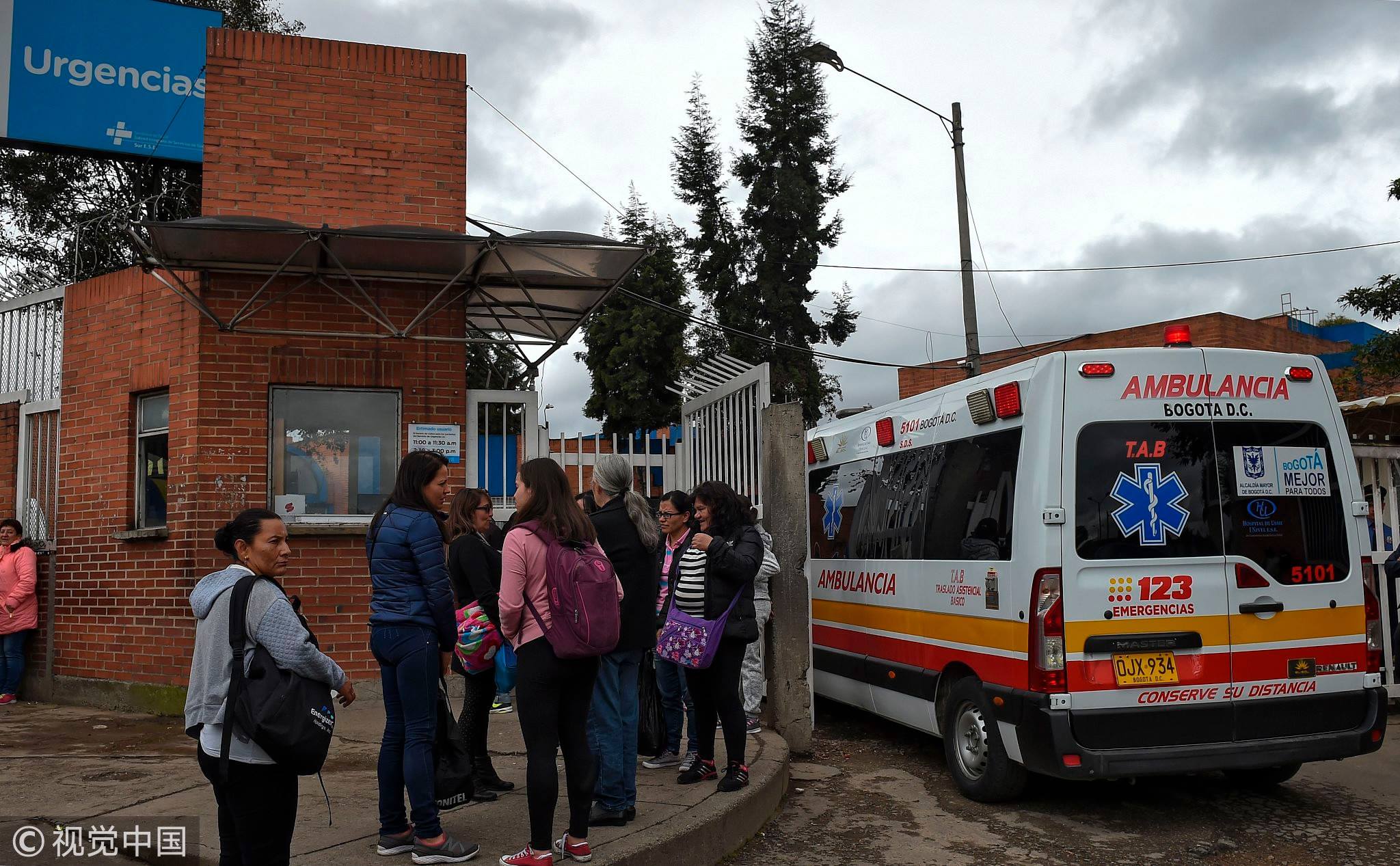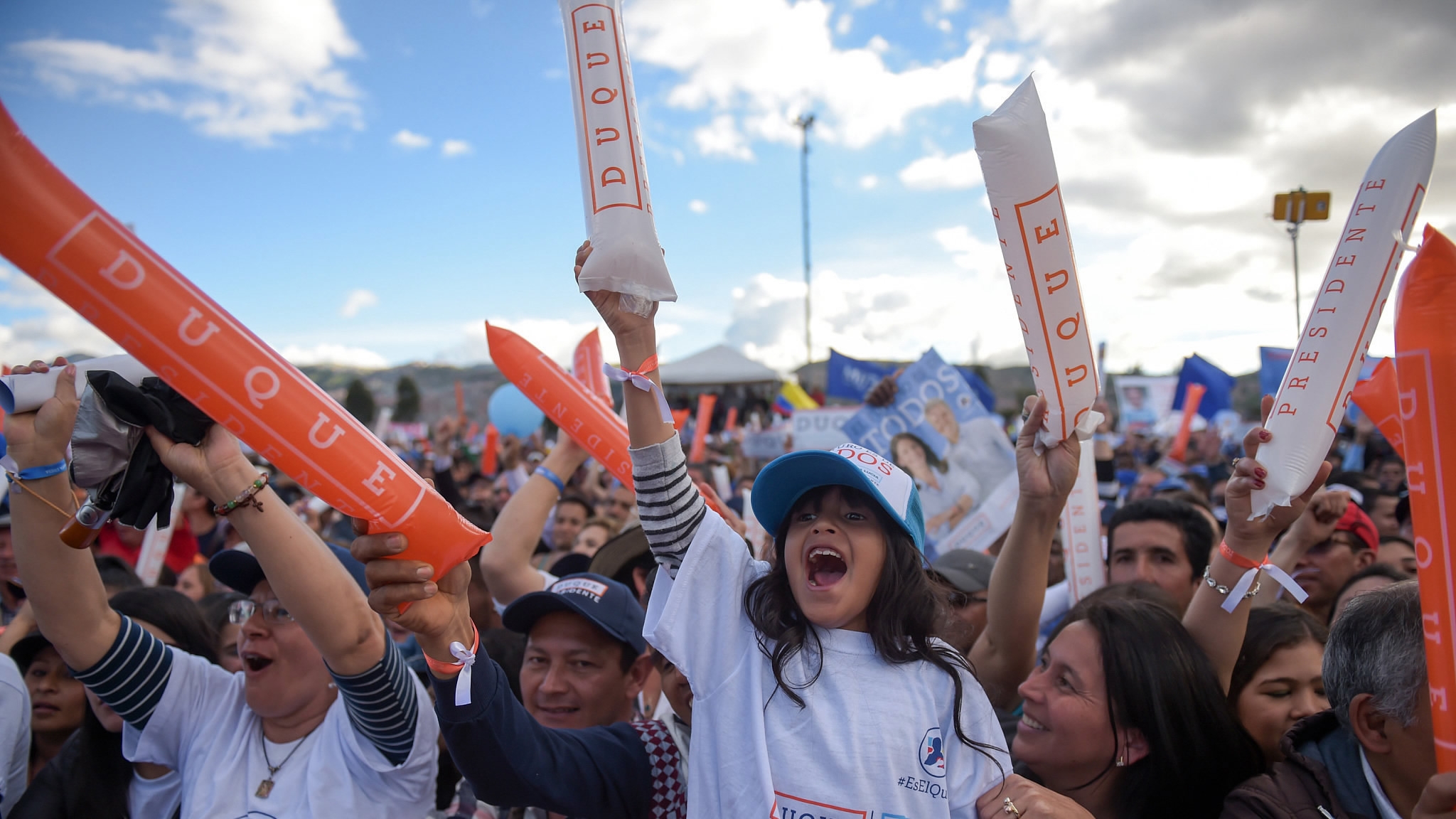Editor’s note: Jiang Shixue is the Director and Professor of the Center for Latin American Studies under Shanghai University in China. The article reflects the author’s opinion, and not necessarily the views of CGTN.
2018 is indeed the year of election for Latin America. One week after the presidential election in Venezuela, Colombians will vote for their own president on May 27. If no one receives 51 percent of the votes, the top two candidates will compete in a runoff three weeks later on June 17. The winner of that second round will be inaugurated on August 7, 2018.
This presidential election will be the first one since the government reached a peace deal with the Revolutionary Armed Forces of Colombia, or Fuerzas Armadas Revolucionarias de Colombia (FARC) in August 2016.
Negotiations between the government and FARC started as early as in September 2012. Brave political compromise from both sides paid off. FARC agreed to put down their weapons and turn itself into a political party. It keeps the initials (FARC), but the words are different: Fuerza Alternativa Revolucionaria del Común, or Common Alternative Revolutionary Force.

Supporters of Colombia's presidential candidate for the Democratic Center Party, Ivan Duque, attend his campaign closing rally in Bogota, Colombia on May 20, 2018, ahead of the May 27 presidential election. /VCG Photo
Supporters of Colombia's presidential candidate for the Democratic Center Party, Ivan Duque, attend his campaign closing rally in Bogota, Colombia on May 20, 2018, ahead of the May 27 presidential election. /VCG Photo
Although a referendum to ratify the peace deal on Oct. 2, 2016 proved unsuccessful, as 50.2 percent of voters voted against it with 49.8 percent voting in favor, the Norwegian Nobel Committee announced on Oct. 7 of the same year that it decided to award the Nobel Peace Prize to Colombian President Juan Manuel Santos for his resolute efforts to reach the peace deal with FARC.
Supporters of the peace deal were happy that the more than 50-year-long civil war finally came to an end. The war had cost the lives of at least 220,000 Colombians and displaced close to six million people. However, opponents say FARC should not go away without being punished for their bloody deeds.
After the referendum failed, the Colombian government and FARC started re-negotiations and made some minor amendments to their original peace agreement. They signed a new deal on Nov. 24. It was sent to Congress for ratification instead of conducting a second referendum. Both houses of Congress ratified the revised peace deal on Nov. 29-30, 2016.
Attitudes of the presidential candidates towards the peace process are not identical. But it is unlikely that the new president will kill the peace deal. After all, peace is more precious than anything else.

Colombia's presidential candidate for the Democratic Center Party, Ivan Duque, addresses supporters during his campaign closing rally in Bogota, Colombia on May 20, 2018, ahead of the May 27 presidential election. /VCG Photo
Colombia's presidential candidate for the Democratic Center Party, Ivan Duque, addresses supporters during his campaign closing rally in Bogota, Colombia on May 20, 2018, ahead of the May 27 presidential election. /VCG Photo
While the peace processes and its fate still dominates international headlines, opinion surveys show that not many Colombians are concerned about it. Rather, a majority of the voters say that the country’s top issues are rising unemployment, poor healthcare, degrading infrastructure, stubborn corruption, etc.
What is the consequent effect of this election on business in Colombia? Before the peace deal, investors were quite concerned about the security situation there. Hopefully, the new President will strive to restore confidence of the investors in Colombia.
It is also improbable that this election will make an abrupt turnaround for its foreign policy. Everything in Colombia’s diplomacy will be “business as usual”.
After the election, the bilateral ties between Colombia and the US will be the same. That is to say, both sides will maintain their very good relations as in the past. For the US, establishing peace and reducing cocaine production in Colombia or any other Andean nations is always a great concern.

People stand outside the emergency room of a hospital in Bogota, Colombia on May 21, 2018. Millions of Colombians are dissatisfied with the semi-privatized healthcare system, which has become a central topic of the campaign ahead of next May 27 election. /VCG Photo
People stand outside the emergency room of a hospital in Bogota, Colombia on May 21, 2018. Millions of Colombians are dissatisfied with the semi-privatized healthcare system, which has become a central topic of the campaign ahead of next May 27 election. /VCG Photo
It can be expected that Colombia will continue to receive economic and military assistance from the US. As Colombia’s ambassador to Washington, Camilo Reyes, said prior to Rex Tillerson's, then US Secretary of State, visit to South America in February this year, “As we continue to build a stable and lasting peace, we are grateful for the long-standing bilateral partnership and the bipartisan support of the United States.”
Colombia’s relations with China will continue to proceed smoothly. In May 2015, Chinese Premier Li Keqiang went to Colombia. That was the first visit by China’s head of state to this South American country. The interesting question is whether the new President of Colombia will have greater enthusiasm about a free trade agreement (FTA) between the two sides. The decision to have an FTA was made six years ago, but real negotiation is yet to start.
China will never forget the incident in June 2011. Four Chinese from an oil company were kidnapped. It was believed that the kidnappers were FARC soldiers. Therefore, in order to promote Sino-Colombian economic relations, peace and security in Colombia is important.





